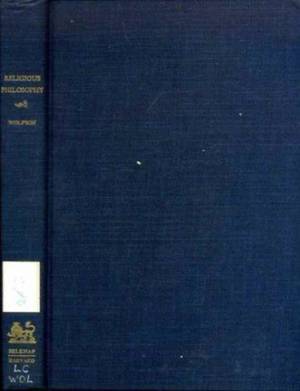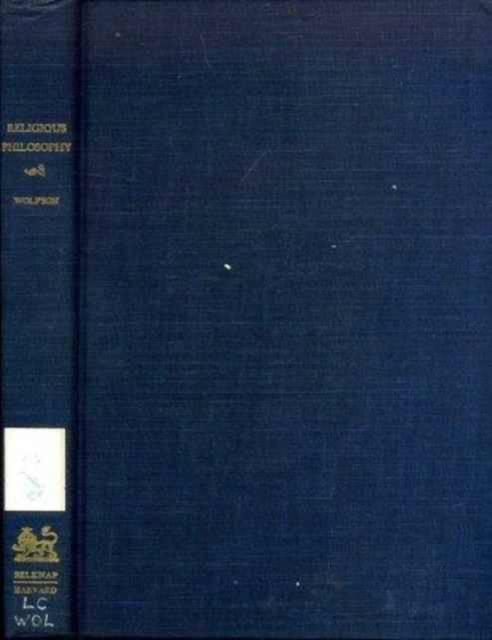
- Retrait gratuit dans votre magasin Club
- 7.000.000 titres dans notre catalogue
- Payer en toute sécurité
- Toujours un magasin près de chez vous
- Retrait gratuit dans votre magasin Club
- 7.000.000 titres dans notre catalogue
- Payer en toute sécurité
- Toujours un magasin près de chez vous
197,95 €
+ 395 points
Description
As Harry Austryn Wolfson deftly isolates and analyzes some of the most vital and often the most enigmatic ideas developed by the religious philosophers of the West, a cumulative and thoughtful continuity emerges from his interpretations. Philo, for example, appears as a dominant force throughout the sixteen centuries that preceded Spinoza's critique of his basic principles.
The ten essays which constitute the critical sequence of this penetrating book are derived from lectures, and from separate publications many of which are not readily available now. They include discussions of Immortality and Resurrection in the Philosophy of the Church Fathers; St. Augustine and the Pelagian Controversy; Causality and Freedom in Descartes, Leibniz and Hume. Wolfson concludes with a perceptive distillation of his personal wisdom in an essay contrasting the professed atheist with the "verbal theist."Spécifications
Parties prenantes
- Auteur(s) :
- Editeur:
Contenu
- Nombre de pages :
- 294
- Langue:
- Anglais
Caractéristiques
- EAN:
- 9780674759008
- Date de parution :
- 01-01-61
- Format:
- Livre relié
- Format numérique:
- Genaaid
- Dimensions :
- 152 mm x 222 mm
- Poids :
- 612 g







